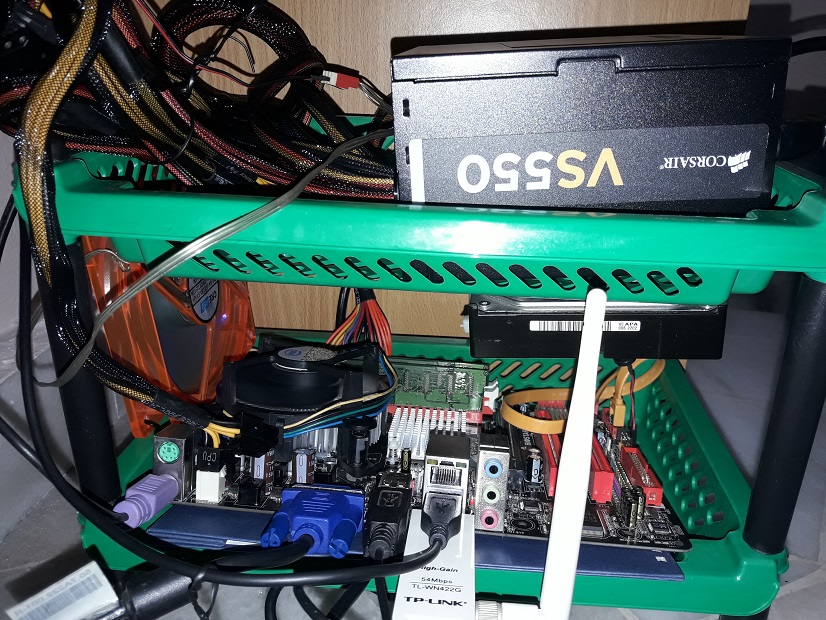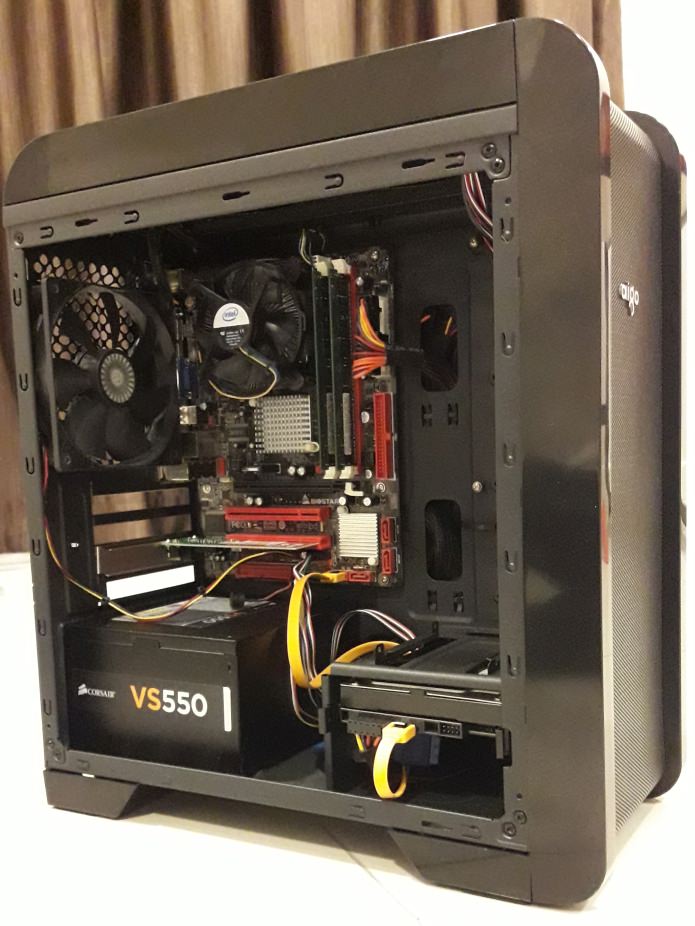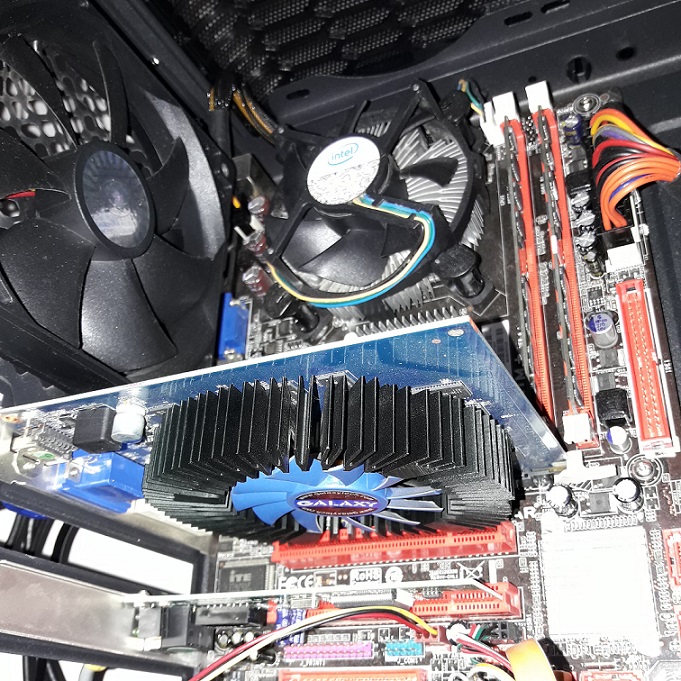Skylinestar
Gawd
- Joined
- Jun 14, 2011
- Messages
- 528
I'm planning to build a spare rig from old parts:
- Intel Pentium E5200 2.5GHz cpu
- Biostar G31M+ LGA775 motherboard
- 2x 1GB DDR2-800 ram
- WD 80GB SATA hdd
WinXP will definitely run fast on it. But I'm thinking of Ubuntu too. I've heard Linux has lower system requirements than M$ Windows. How true is this? Will Ubuntu run faster than XP on this rig?
Alternate is to go through the hassle to build a hackintosh. I believe this is the toughest but I do heard nice story about how smooth OS X runs on old hardware.
The main usage of this rig is basic internet surfing, or probably just scanning my thumbdrive for viruses/worms in case my main gaming rig (runs on Win10) fails to detect it.
Any opinion is appreciated. Thanks in advance.
EDIT: Built complete.

EDIT2: Bought a used Aigo Blade II casing for less than $20. Previous owner has lost all the PCI slot covers.

EDIT3: Addon GeForce GT 440 + swap 2x1GB ram with 2x2GB ram.

- Intel Pentium E5200 2.5GHz cpu
- Biostar G31M+ LGA775 motherboard
- 2x 1GB DDR2-800 ram
- WD 80GB SATA hdd
WinXP will definitely run fast on it. But I'm thinking of Ubuntu too. I've heard Linux has lower system requirements than M$ Windows. How true is this? Will Ubuntu run faster than XP on this rig?
Alternate is to go through the hassle to build a hackintosh. I believe this is the toughest but I do heard nice story about how smooth OS X runs on old hardware.
The main usage of this rig is basic internet surfing, or probably just scanning my thumbdrive for viruses/worms in case my main gaming rig (runs on Win10) fails to detect it.
Any opinion is appreciated. Thanks in advance.
EDIT: Built complete.

EDIT2: Bought a used Aigo Blade II casing for less than $20. Previous owner has lost all the PCI slot covers.

EDIT3: Addon GeForce GT 440 + swap 2x1GB ram with 2x2GB ram.

Last edited:
![[H]ard|Forum](/styles/hardforum/xenforo/logo_dark.png)



